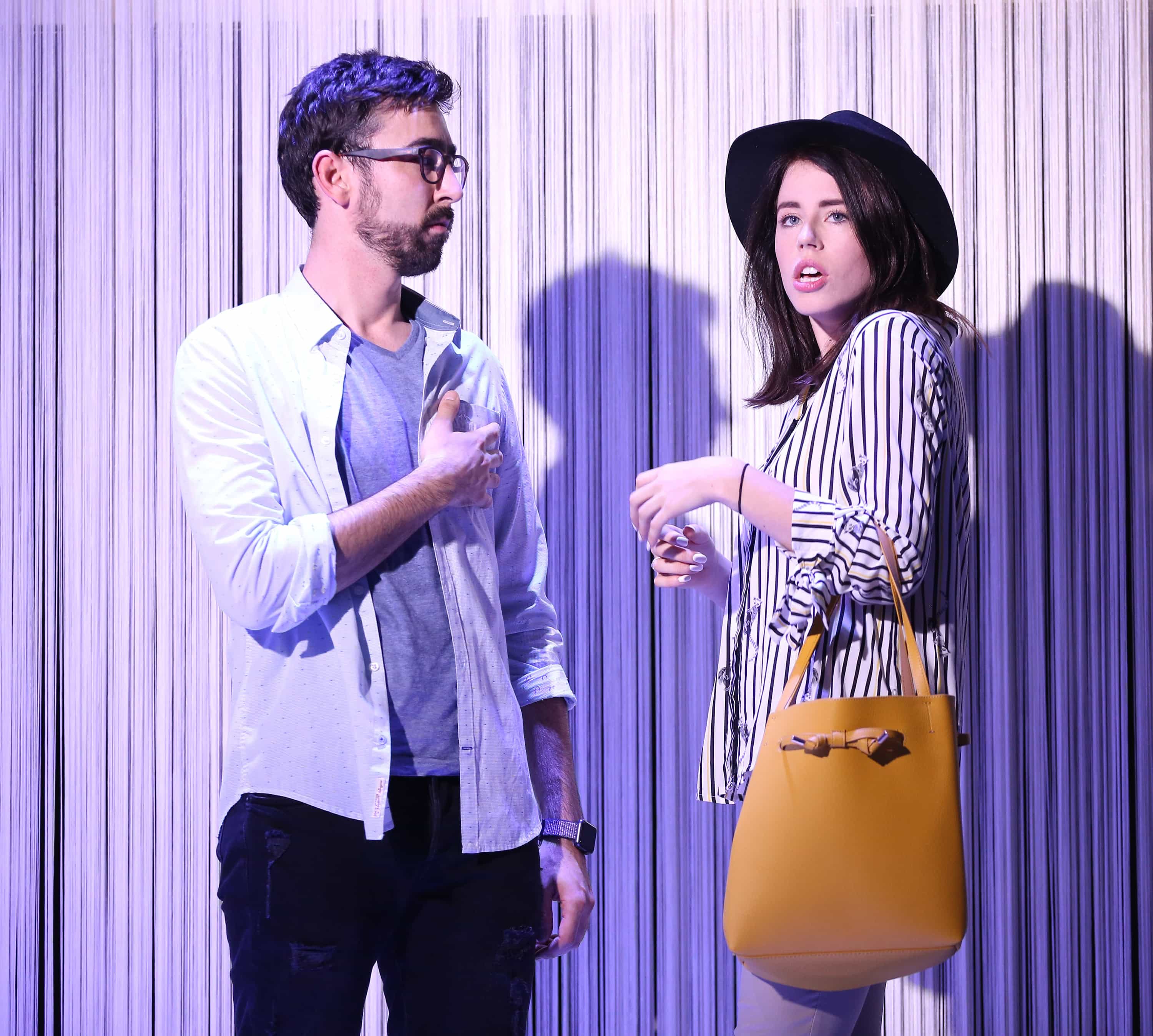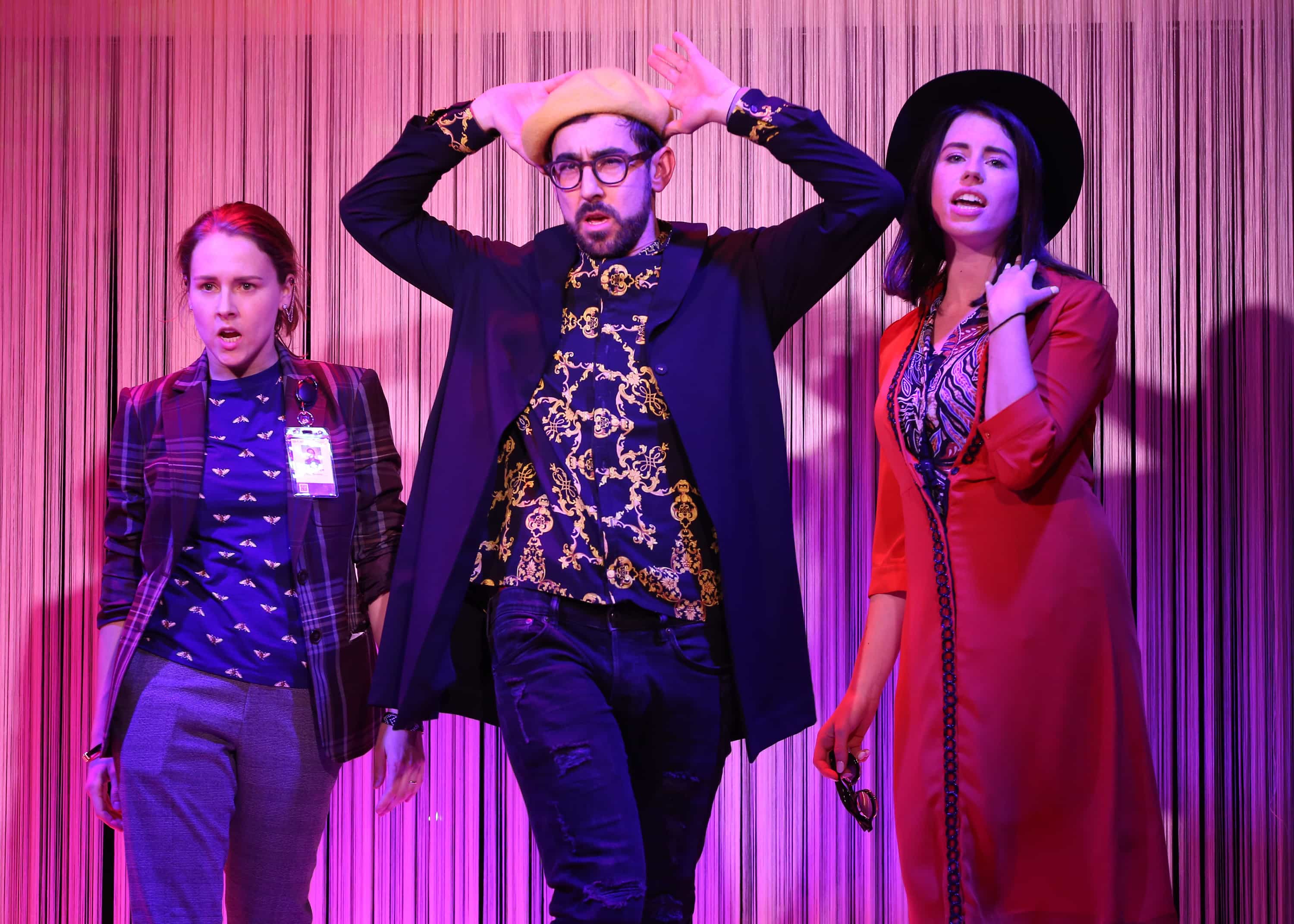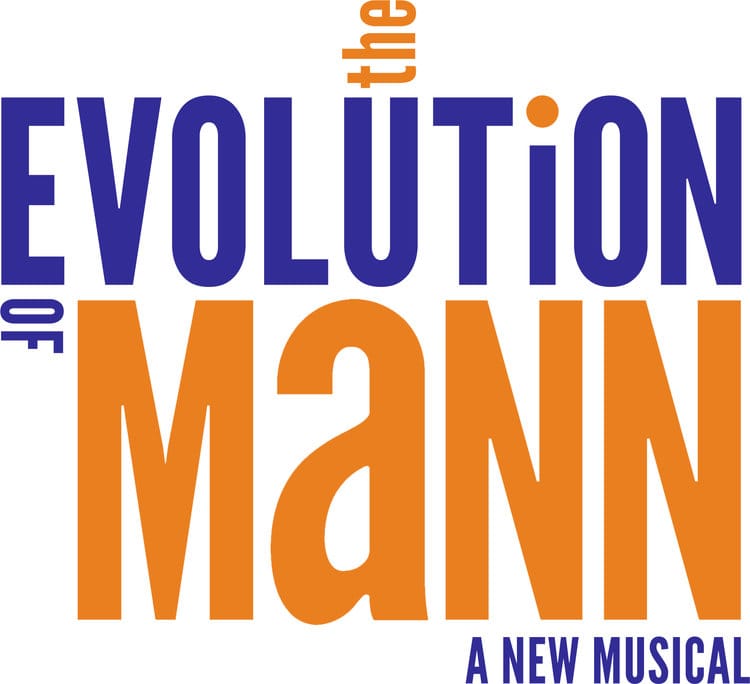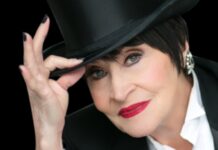Panic, desperation, and a ticking clock are not the best motivations for dating or matrimony, as evinced by Henry Mann, the titular character in The Evolution of Mann. The new musical rom-com by Douglas J. Cohen (music and lyrics) and Dan Elish (book and lyrics, based on his 2005 novel Nine Wives) offers a cute, sweet, lighthearted look at the familiar theme of one Millennial navigating the ups and downs of relationships through trial and error, making a promising connection when, where, and with whom it’s least expected, and maybe even learning in the process that true love doesn’t have a deadline and can’t be forced.

Max Crumm stars as the struggling 32-year-old single writer, still reeling over the unexpected break-up with his fiancée Sheila (Allie Trimm), who dumped him for a wealthier husband, attending the weddings of no less than twelve of his friends over the past twelve months, and receiving a pivotal invitation, for him and a guest, to attend Sheila’s upcoming nuptials. So begins his urgent quest to find a significant other to accompany him to the big event and to share his life, with the well-intentioned help of his lesbian BFF and roommate Gwen (Leslie Hiatt), likewise suffering from romantic remorse – in her case, after cheating on the ex-wife she loves and wants to win back.
The ever-engaging Crumm brings all of the emotions to his central character – the hurt and angst, hopes and desires, awkwardness and flaws – in his belated coming-of-age story, as he directly addresses the audience, enacts a series of unsatisfying encounters with Christine, who has a particular facial feature he finds unappealing and distracting, and Tamar, who, while dating Henry and giving him faulty artistic advice and a bad make-over, is still hung up on a married man (both women, in addition to Sheila, are portrayed by the chameleonic Trimm, as is the stereotyped Mrs. Mann, the protagonist’s meddling mother). Despite Henry’s often “debatable decisions” and behavior, Crumm renders him likeable throughout, giving his insecure character the repeated pep talk, “You’re good looking. You’re smart. Women love you . . . YOU DE MAAAANNNNN!” and singing about how “Hard” dating is (employing the obvious double-entendre) and about “Settling Down” (here cleverly using the alternate meanings of both “settling” and “down”), while he and the others all question in song, “What’s the Matter with Henry?”

The solid cast (in addition to playing Gwen, Hiatt assumes the roles of a few minor male characters in Henry’s journey) is backed from behind the upstage curtain by a tuneful trio (Tomoya Aomori on cello, Darren Lucas on guitar, and Vadim Feichtner on piano) that accompanies their melodious vocals without aurally overwhelming the intimate space of the venue (music direction by Eric Svejcar). The amusing songs and simple rhymes are consistent in style (though sometimes to the point of lacking distinction), with Christine’s heartfelt ballad “It’s Only a First Date” (the only number in the show that is reprised) containing the most depth and emotion, and beautifully performed by Trimm.
Directed by Joe Barros, the other stars of the show are the smart staging, using the small space and balcony level to full advantage, and excellent design, with quick changes of character (terrific costumes by Siena Zoë Allen), easily-opened trap doors in the runway-stage floor to store the props and to evoke the different locations of the scenes (set by Libby Stadstad), light boxes that augment the production’s colorful illumination (lighting by Chris Steckel) and also serve as pieces of furniture, and projections (by Nathan Scheuer) that give visual emphasis to the characters’ words, all executed with split-second fluidity and efficiency. And though it’s hard to believe that the 30-something roomies would still have a landline in their apartment, the phone calls that come in on it are integral to the plot, and the sound design by Ellen Fitton is clear and effective.
If you’re in the mood for a light and fluffy look at contemporary love, fine performances, and a pleasant evening of entertainment, The Evolution of Mann just might be the right match for you.
Running Time: Approximately 90 minutes, without intermission.
The Evolution of Mann plays through Sunday, October 21, 2018, at the cell – 338 West 23rd Street, NYC. For tickets, call (646) 861-2253, or purchase them online.





